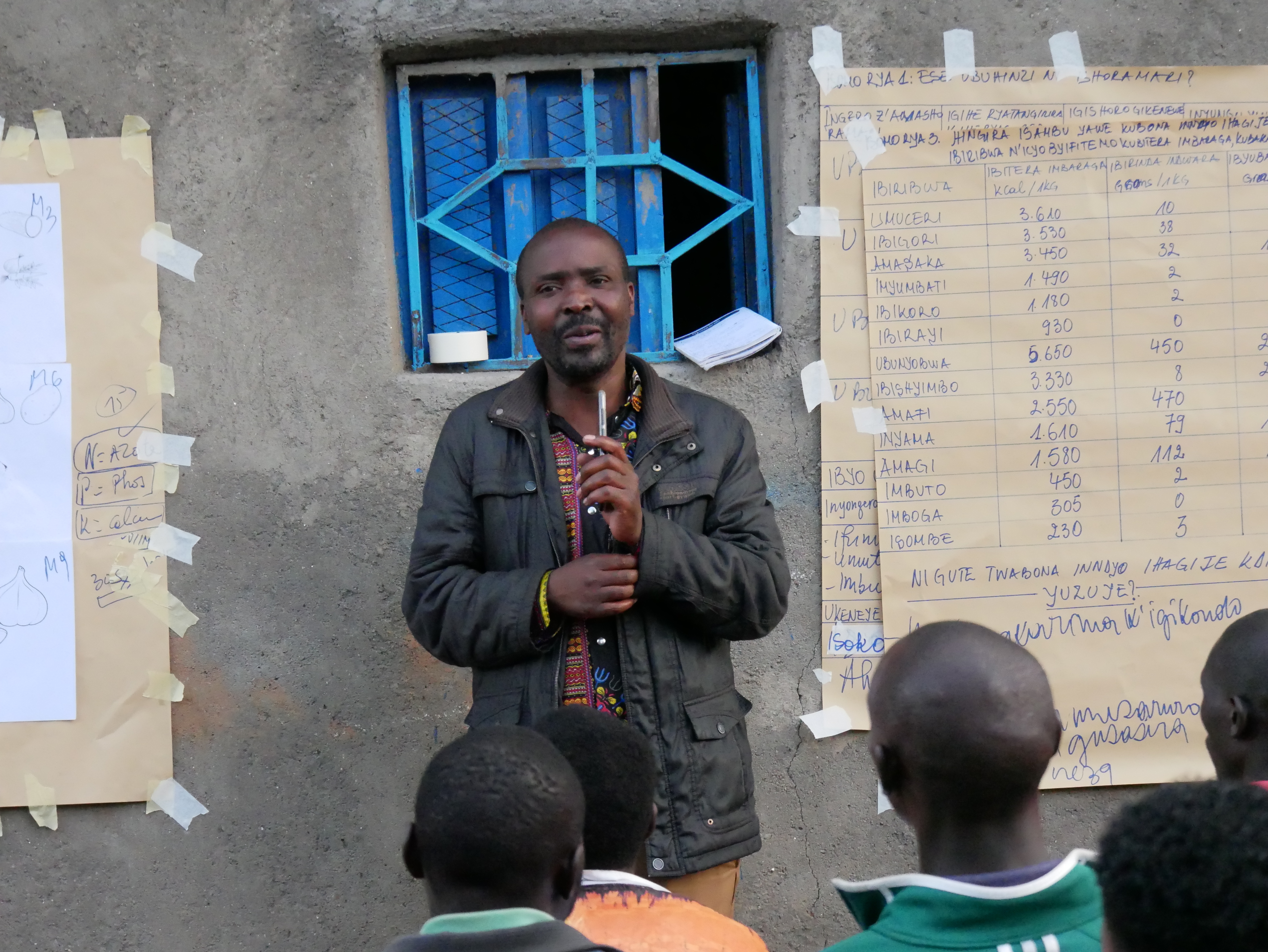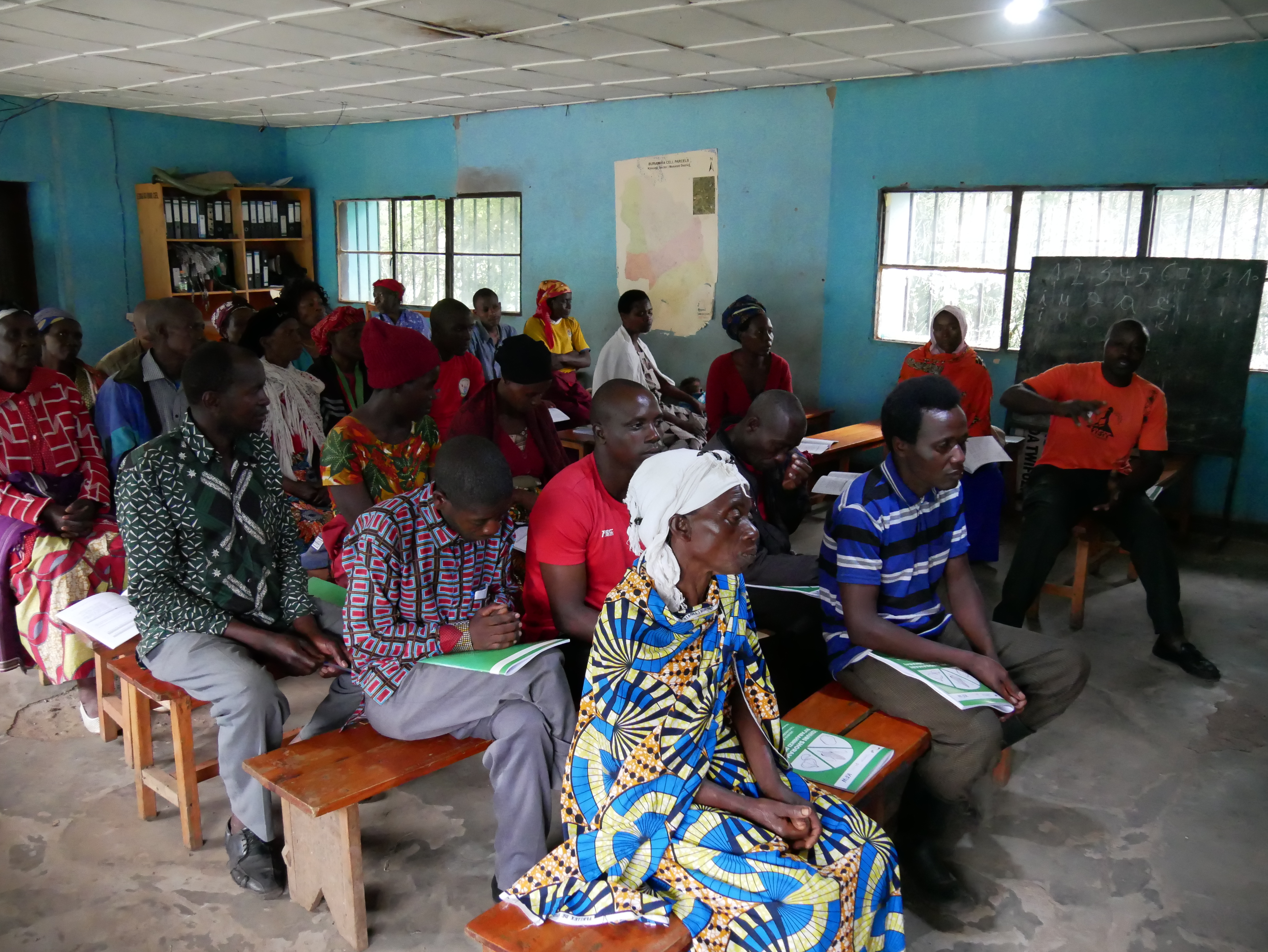In 2022, Invest for Jobs partnered with nine farmer cooperatives involved in garlic production in Rwanda’s Northern and Southern provinces to support them in training their members. Garlic is one of the cash crops grown in Rwanda, making it an excellent base for increasing the productivity and profitability of farmers. The aim of the project was to increase the entrepreneurship and business skills of more than 3,800 smallholder farmers, contributing to increased income generation in their regions.
The approach applied in the joint project was developed for cocoa production systems in Ghana, Nigeria, Côte d’Ivoire, Cameroun, and Togo, where it became known as the Farmer Business School (FBS). Since its initiation, it has been applied to train over 1,400,000 smallholder farmers in 22 African countries. Now, with the support of Invest for Jobs, it has reached Rwanda.
 © GIZ, Umutoni // Lecture at the Farmer Business School in Rwanda
© GIZ, Umutoni // Lecture at the Farmer Business School in Rwanda
The FBS focuses on improving farmers’ business skills. Training modules include topics such as farm management, financial acumen, and product diversification. Ultimately, the modules help farmers in taking income-oriented decisions based on cost-benefit analyses that consider different technologies for a lead crop and two other food crops. Thus, they receive the needed tools to identify market opportunities to improve productivity, family income, and nutrition.
The trainings are intended to contribute to achieving the following objectives:
- Productivity and quality increases of smallholder agriculture;
- Diversification of smallholdings;
- Improved incomes and living conditions of smallholders and their families;
- Professionalising producers and their organisations;
- Practicing climate-smart agriculture
The farmers are being trained in cohorts of 25-30 farmers. Each cohort is trained on five subsequent days. Trainings take place within the farming communities in very diverse locations, such as communal houses, churches, warehouses, or simply under a tree close to clay walls for visualising posters.
 © GIZ, Umutoni // Indoor lecture at the Farmer Business School in Rwanda
© GIZ, Umutoni // Indoor lecture at the Farmer Business School in Rwanda